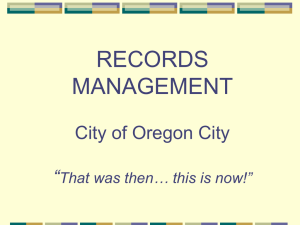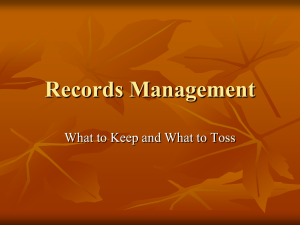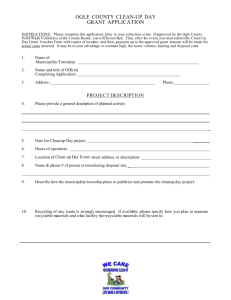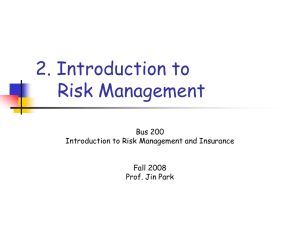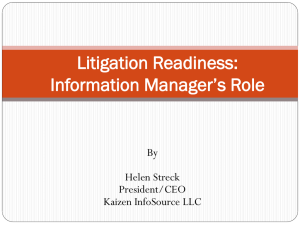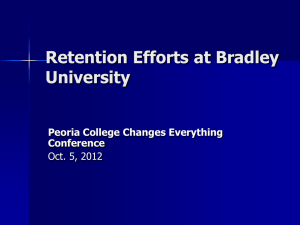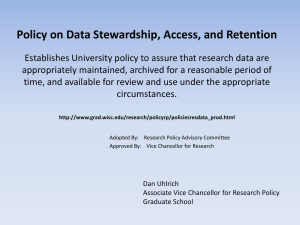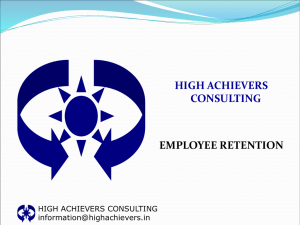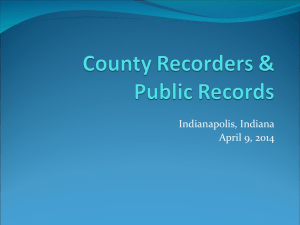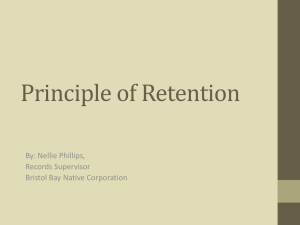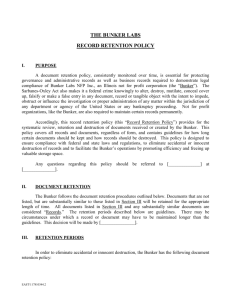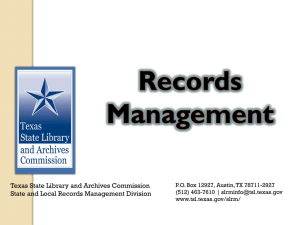Why records management matters- *top 10* reasons
advertisement
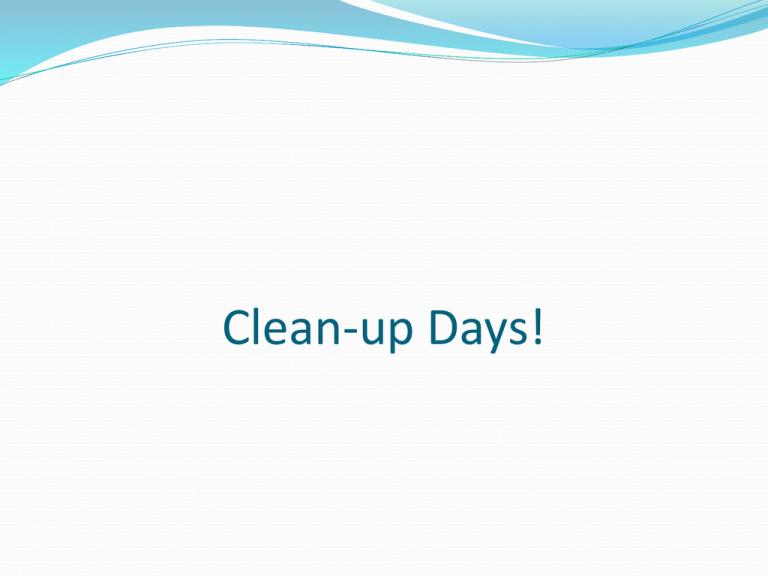
Clean-up Days! Clean-up Days! Why records management matters- “top 10” reasons 1. 2. 3. 4. 5. To control growth and creation of records To reduce operating costs To improve efficiency and productivity To assimilate new information management technologies To preserve the corporate memory Top 10 reasons (con’t) 5. To foster professionalism in running the business 6. To support better management decision making 7. To safeguard vital information 8. To ensure regulatory compliance 9. To minimize litigation risks Enforcement No other issue will be more scrutinized than whether a company can demonstrate that it systematically, non-selectively enforces its intentions as stated in the corporate records management policy. This includes adherence to the retention schedules, elimination of employee discretion, prevention of obstruction by outside parties and vendors, and the proper control of records subject to pending or imminent government investigation, litigation or audit. What is a Records Clean-Up Day? A "Records Clean-Up Day" is a full day sanctioned and supported by Business Unit or Function Leaders to set aside valuable time for employees to go through their desk and office files, hard drives, network files, email and clean out those files that have fulfilled their records retention requirements and that are not under tax, litigation or investigative hold. It is a day set aside to promote compliance with your Company’s records retention schedule, policies, and practices It’s a FULL day devoted to clean up sanctioned and supported by a senior leader of an organization. It is a day that allows staff to clean up any centralized department files, their offices/desks, paper files, and electronic files including email Benefits Better Operation Efficiencies: Cutting through the clutter of unnecessary documents/emails facilitates getting the right information to the right people at the right time. Saving Space & Controlling Costs: Space is a premium ,and it seems that office space is becoming smaller and smaller. There isn't the space to store all the files and records to which we've grown accustomed. Additionally, controlling costs is also a consideration, because in the end, we're not spending money sending information that is unnecessary to inactive storage. Managing Risks: Simply put, having a "Records Clean-Up Day" helps us comply with the Records Retention Policy and the Email Management Policy. Today's headlines are filled with stories about companies that for whatever reason had a records retention policy and chose not to follow it...and the price they paid for not doing so. Objectives Sort through your work documents, and work to ensure all your files both paper and electronic comply with your Company’s Records Retention Schedule: On-site hard copy documents only (does not include off-site storage) Electronic Stored Information (e.g. email) What should you include in your Clean-up Day Handbook? What is a Record? What is an Official Record? What is a Legal Hold? Information Defined “Information” is documented or written shared knowledge, regardless of format or content, involved in your Company’s business operations. Information can be contained in paper, verbal or electronic format. “Disposable Information” includes any information that does not constitute a Record as defined below. Disposable information is not subject to long-term storage requirements and should be disposed of after its useful life in the ordinary course of business (unless it is subject to a Hold). Drafts, templates, blank forms, duplicate copies of official records and other transitory are some examples of what might be “Disposable Information” Records Retention Schedule What is it? How do you read it? What if I can’t find where my records fall? What does it matter if I keep the records beyond the Records Retention Schedule? Questions? Let’s talk Clean-up in your office, department, industry or company! Thank you!
